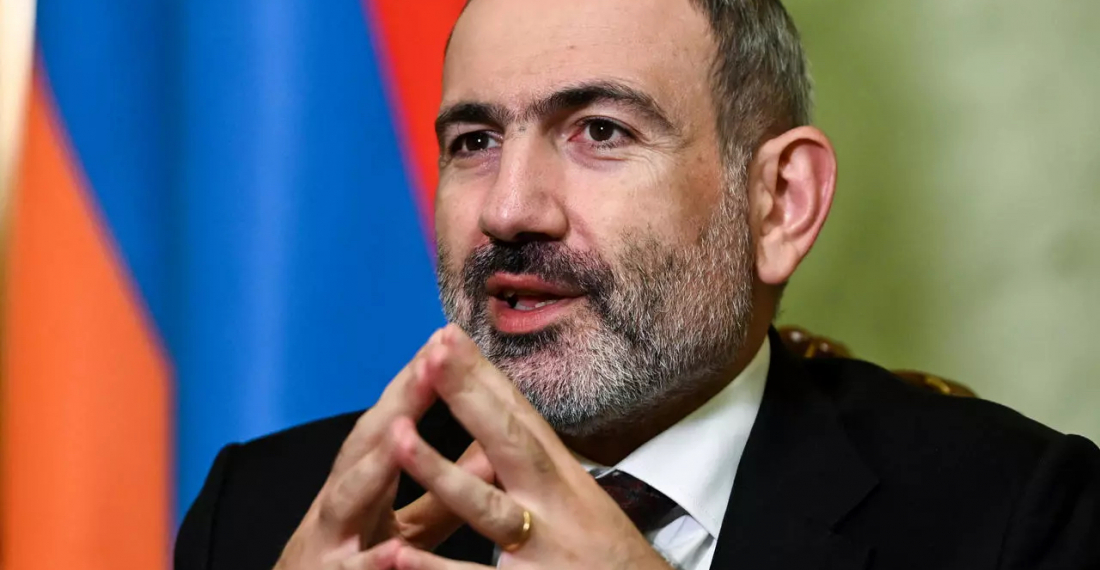Armenian Prime Minister Nikol Pashinyan has outlined his plan for renewal and reform in the country, following its defeat in the Karabakh war. Over the last days opposition parties have called for Pashinyan's resignation blaming him for the defeat.
Pashinyan, whilst assuming the responsibility for the defeat, also said that he was determined to stay on as prime minister and lead a process of change. He outlined a road map with 15 points for the next months. In a facebook posting Pashinyan wrote:
"During the last week we numerously talked about the war that began on September 27, our failures, the subsequent situation and details of this situation.
The time has come to speak about the ways, methods and programs for overcoming this situation. I have already said that I am the number 1 responsible person for the situation. I am also the main responsible person for overcoming the situation and establishing stability and security in the country. I am underscoring, not only don't I intend to refuse from this responsibility, but I am entirely engaged in this work.
The roadmap of our actions is the following:
The restoration of the Karabakh negotiations process in the OSCE MG Co-Chairmanship format, with the emphasis of prioritizing the status of Artsakh and the return of Artsakh residents to their place of residence.
Ensure the return of the residents of Artsakh to their [homes]. Entirely restore normal life in Artsakh. Restoration of damaged homes, apartments and infrastructures in the territories that are under the control of the Nagorno Karabakh authorities.
Ensure social guarantees for the families of killed servicemen and citizens.
Restoration of residential and public buildings and infrastructures in the territory of Armenia that were affected during the war.
Ensure social guarantees, prosthesis process and professional training for servicemen who suffered disabilities.
Speedy return of captured servicemen and civilians. Ensure social guarantees for their families. Speedy clarification of the fates of those missing in action. Ensure social guarantees for their families.
The development of a psychological rehabilitation system for people who participated in the war and overall the entire society.
Confirmation of a military reforms program and launch of reforms.
Overcoming of the coronavirus pandemic and elimination of its consequences.
Restoration of the economic activity environment.
Activation of programs for solving demographic problems.
Amendments of the Electoral Code and adoption of a new law on political parties.
Introduction of the institution of specialized judges, as the first step in creating the Anti-Corruption Court. Launch of implementation of the illicit asset confiscation law.
Holding permanent thematic consultations with representatives of Armenia's political and civil community.
Holding permanent thematic consultations with Armenian organizations and individuals in the Diaspora. Involvement of individuals and organizations of Armenia and the Diaspora in the above-mentioned processes.
The most important purpose of this is to ensure the democratic stability of Armenia and create guarantees that nothing is threatening the formation of government in Armenia through the free expression of will.
Changes are underway in the government composition for realizing this roadmap.
The meaning and goal of the changes will be the more effective implementation of this program and the maximal adjustment of the government composition to the realization of this roadmap.
Dear countrymen, dear people,
Getting the realization of these programs on irreversible institutional tracks will take 6 months. In June 2021 I will deliver the performance report of this roadmap, and the public opinion and reaction will be taken into account for deciding future actions.
I would like to express special gratitude to employees of the state administration system of Armenia, as well as the My Step parliamentary bloc for their work and unity during this difficult period of time. We have a lot of work to do and we are obliged to succeed. Let's get to work".
source: commonspace.eu with Armenpress (Yerevan)







